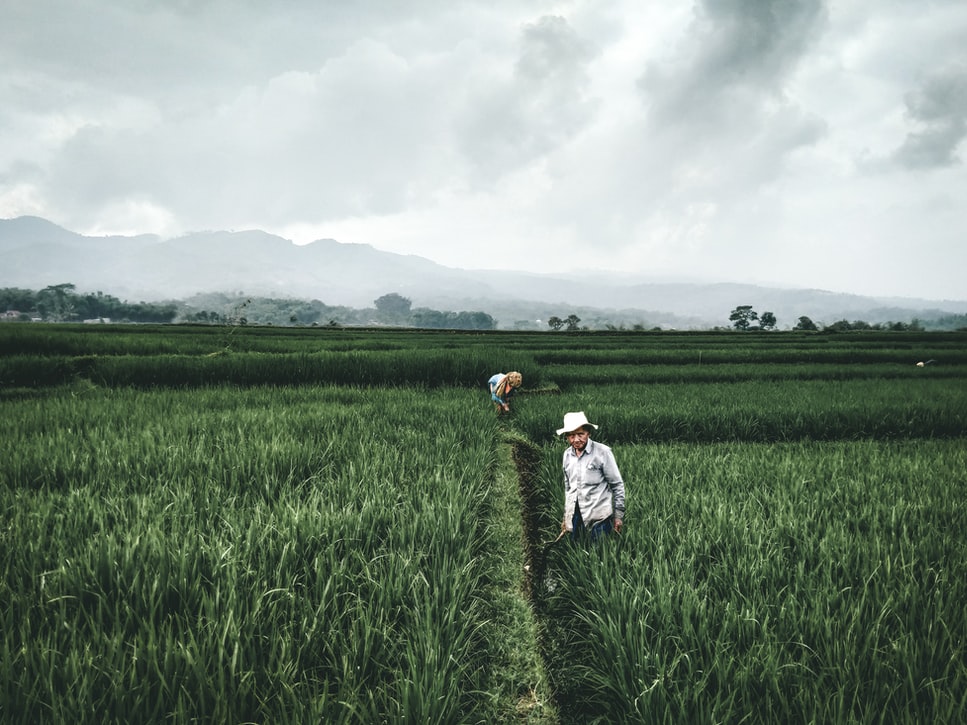Around seven million children in West Africa currently benefit from school feeding programmes, and for many of them, this food makes up an important part of their diet. When schools across the region closed for lockdown, family food supplies in the most vulnerable households took a double hit: A gap in school feeding programmes for the children, and pandemic-related income loss and instability for the adults. Informal employment is dominant in the region, and the need to go out to secure food, water or work is an unavoidable daily reality.
Following the outbreak of Covid-19, it was estimated that 82 million jobs in the region’s food sector would be affected by mobility restrictions. Thankfully, the pandemic has had a limited effect on global trade in agricultural products and no global food crisis occurred. Yet the events of the past 12 months have been a stark reminder of the vulnerabilities of the food system in many countries – and the effects on the most vulnerable everywhere.
Resilience for whom?
In the lead-up to the UN Food Systems Summit, considering how Covid-19 affected food and nutrition security in different contexts provides many useful learnings. As stakeholders consider how to build resilience to shocks and stress in the food system, key questions to keep in mind are resilience of what, and for whom?
There may be situations where local-level resilience is at odds with regional- or larger-scale resilience, or vice versa. Building resilience to shocks means that difficult trade-offs between social, economic, and environmental resilience and sustainability concerns cannot go unacknowledged and need to be addressed. For example, while digitisation and mechanisation of food production can improve productivity and reduce exposure to certain risks, improved technology should not come at the expense of employment and farmer livelihoods. Instead, changes in methods of production that affect workers should be accompanied by retraining and other forms of social support.

Improved technology should not come at the expense of employment and farmer livelihoods, writes the authors. Photo credit: Unsplash
The recent ISC-IIASA report on Resilient Food Systems, which was developed through consultations with scientists and other stakeholders, argues that concerns about efficiency in the food system must be balanced with concerns for equity. That way, our food systems can help ensure that all people are empowered to prepare for – and withstand – instability.
The longer-term effects of Covid 19 and containment measures are impossible to predict, but it seems likely that the long tail of the pandemic will bring a period of economic uncertainty and instability – particularly in regions that are vulnerable to conflicts. With climate change increasing the number of extreme weather events – such as droughts or flooding – that may affect farming and food production, it is likely that we will be facing famines in certain parts of the world.
Fostering wide collaboration
To return to the example of school feeding programmes, research into the effects of alternative approaches is shedding light on suitable adaptations, with many countries using targeted cash transfers or other measures while schools remained closed. As schools start reopening in many countries, UNESCO, UNICEF and WFP have emphasised the importance of making sure that school feeding programmes restart as well. This kind of social safety net can help to provide a buffer against the socioeconomic and health consequences of the pandemic.

According to the authors, we need greater collaboration between scientific disciplines and stakeholders throughout the food system, including farmers and other food producers. Photo credit: Unsplash
Remaining agile in the face of uncertainty and taking context-sensitive measures to protect food and nutrition security in the face of shocks demands open access to scientific data and knowledge. This can help in charting the right course forward, and create greater capacity to interpret and act upon evolving information and facts.
If we are to build capacity to deal with uncertainty in the future, we need greater collaboration between scientific disciplines and stakeholders throughout the food system, including farmers and other food producers. We also need to make sure that mechanisms are in place to include all relevant stakeholders in co-developing resilient and sustainable food systems.



